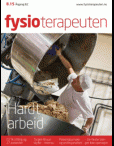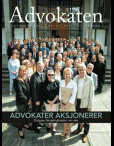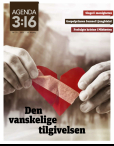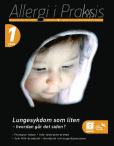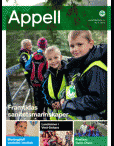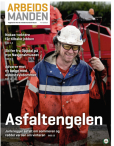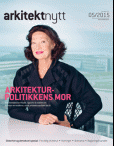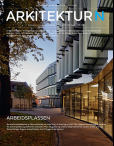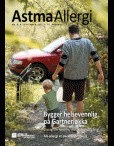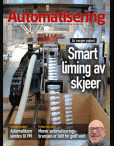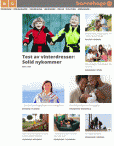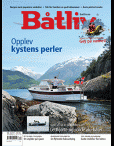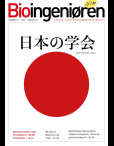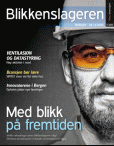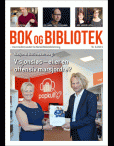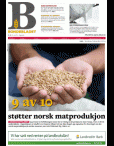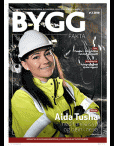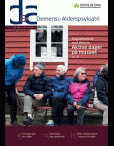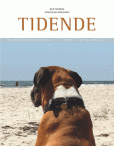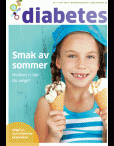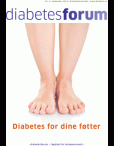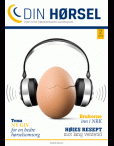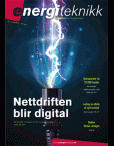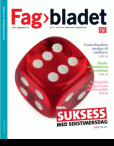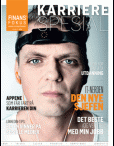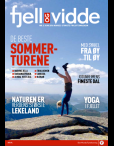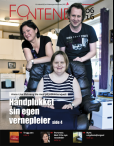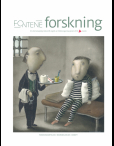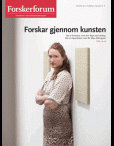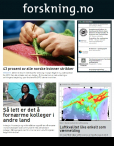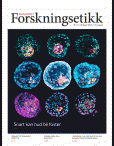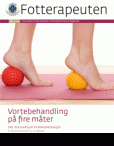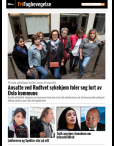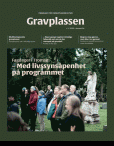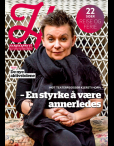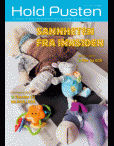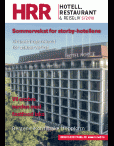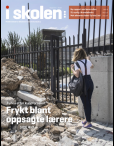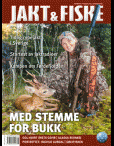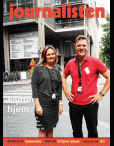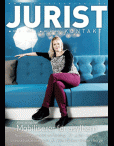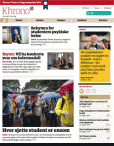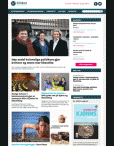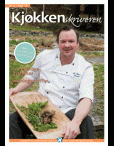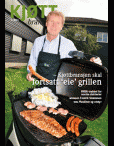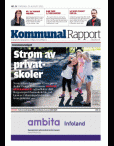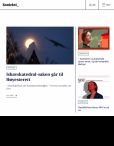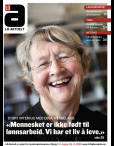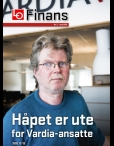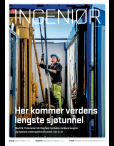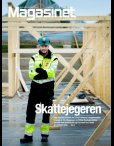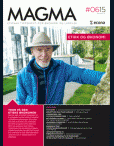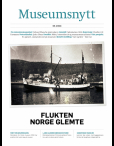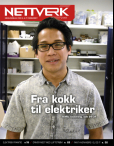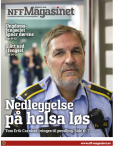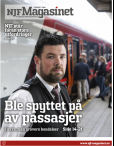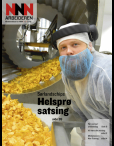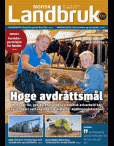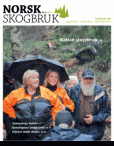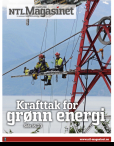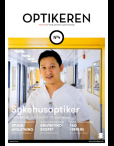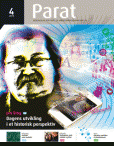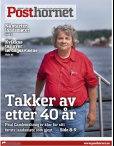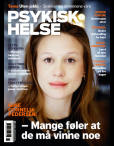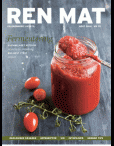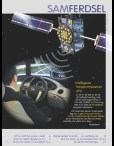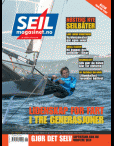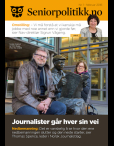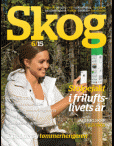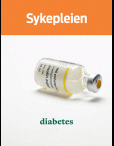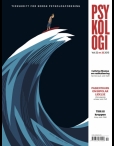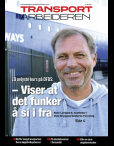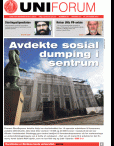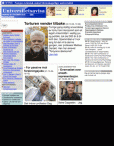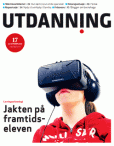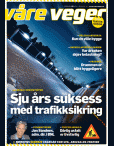Fysioterapeuten
30.10.2017

Abstract ■ In this article, we draw on Barbara Gibson's critical physiotherapy ethics to argue for changes in how physiotherapists approach children and adolescents with obesity.
... In line with Gibson's approach, we seek to reframe practice by applying an ethics committed to openness and doubt, arguing that such an ethics can help physiotherapists discover and analyse ethical moments in the context of lifestyle programs targeting children and adolescents with obesity. Drawing on the experiences of an adolescent participant and a physiotherapist involved in two different Norwegian group-based programs emphasizing weight control, we show how Gibson's post-critical ethics can help physiotherapists become more reflective, challenge established norms, and open up new possibilities for practice. In our conclusion, we emphasize the ability of critical physiotherapy ethics to raise questions about the status quo, stimulate debate, and encourage fresh thinking with regards to children and adolescents seeking to tackle their obesity. ■ Key-words: critical physiotherapy ethics, obesity, children, adolescents. Introduction
Obesity has become a topic of concern in medical literature and the media, with discussion of it tending to focus on morbidity risks, psychosocial consequences, and the impact of obesity on quality of life (1-4). Considerable effort has been invested in developing effective treatment programs (5- 7), many of them infused by a biomedical perspective in which obesity is seen first and foremost as an imbalance between calorie intake and output. Such programs typically emphasize lifestyle changes (8), with dietary and activity interventions identified as the best means to achieve the desired result (9): reducing patients' BMI. There is therefore both a preventive and a curative aspect to such interventions: they seek to prevent future health problems and diseases (including morbid obesity) while at the same time
curing participants' obesity. In the case of children and adolescents, however, reduction of BMI represents only one dimension of what one might call their 'obesity struggle'. This comprises various health-related problems, including low self-esteem, psychological and emotional problems, anxiety, depression, and eating disorders (10-11).
Physiotherapists and other health professionals working with children and young people must ensure adherence to basic ethical principles, including respect for autonomy, beneficence, non-malience and justice (12-16). Physiotherapists must therefore carefully consider whether their approaches enable participants (and their families) to exercise freedom of choice about entering treatment (autonomy); ensure that the child/adolescent receives a net benefit by participating in the program (beneficence and non-maleficence); and ensure that the program's inclusion criteria are reasonable (justice). These bio-ethical principles make it incumbent on those seeking to change lifestyles to offer treatment that is both effective and geared to the well-being of the child/adolescent (and their parents) (9,13).
Barbara Gibson, however, argues that physiotherapy practice often involves ethical challenges not easily identified by the application of traditional bio-ethical principles (17). In an attempt to reframe moral practice in terms of commitment to doubt and openness (17-18), Gibson sketches an alternative set of ethics, a critical physiotherapy ethics whose core feature involves the discovery or identification of ethical moments. Gibson argues that openness to such moments can help us perforate tacit habits of thought in physiotherapy, avoiding stagnation and opening up new possibilities for practice (17, pp. 12-16). They also provide an opportunity to question such dualities as obese and normal weight, successful and non-successful, active and inactive: binaries which Gibson sees as ingrained in Western thinking (including traditional bioethical principles). She argues that this makes it challenging for health professionals to reflect critically on their own practice: for example, in relation to testing and the ethical issues implicit in its practice. She sets out to delineate an alternative approach capable of offering greater insight into the complex outcomes of physiotherapy practice, including those which are unintended, potentially harmful, and largely tacit.
Gibson's ethics of openness
Gibson's alternative to traditional bioethics draws upon postmodern and critical scholarship with their shared critique of the dominance of positivism (17):
Post-critical work rejects the assumptions of an objective, neutral and value-free science and posits that all knowledge is perspectival (i.e. we always observe something from a certain viewpoint) ... Post-critical approaches thus are focused on uncovering what is taken for granted as true or given and, without necessarily rejecting these «truths» acknowledge that they are provisional and always open to revision.
(17, pp. 5-6).
Gibson argues for a post-critical ethics - an ethics of openness - that problematizes established guidelines and principles, enables physiotherapists constantly to challenge implicit norms and assumptions, and encourages openness to new possibilities for practice (17,18). While acknowledging that physiotherapy as traditionally practiced may be helpful in many ways she questions the readiness of physiotherapists to test, treat and change bodies that deviate from (pre)-established norms (17). As she notes, regarding bodies as problems that need to be rehabilitated and changed has unintended results - ones that are rarely identified by practitioners or debated within a profession whose ethics have been mostly concerned with the risks and benefits of treatment (18). In contrast, an ethics of openness involves the ongoing interrogation of entrenched, habitual physiotherapy practices, including those which are evidence-based.
Openness, then, is about doubt. Or as Gibson puts it: «an ethics of openness emerges from a position of doubt in which there is no predetermined right way to practice. (...) It has to be established along the way (...). »
(18, pp. 140-141). It involves searching for implicit, taken-for-granted notions that have developed into tacit aspects of physiotherapy practice. For Gibson:
Ingrained ideas, practices and principles are never settled, but always open to revision. Moreover, it is perhaps those practices that appear devoid of ethical content that require the closest scrutiny. An ethic of openness like all critical work requires ongoing commitment to thinking against the grain.
(18, p, x).
Methods
This article draws on empirical data from a Norway-based study of interdisciplinary group-based lifestyle programs. Approved by the Norwegian Social Sciences Data Service (NSD), the study was conducted according to strict ethical criteria. Potential participants were fully informed about the nature of the research, and all those selected gave their written con
Gå til medietObesity has become a topic of concern in medical literature and the media, with discussion of it tending to focus on morbidity risks, psychosocial consequences, and the impact of obesity on quality of life (1-4). Considerable effort has been invested in developing effective treatment programs (5- 7), many of them infused by a biomedical perspective in which obesity is seen first and foremost as an imbalance between calorie intake and output. Such programs typically emphasize lifestyle changes (8), with dietary and activity interventions identified as the best means to achieve the desired result (9): reducing patients' BMI. There is therefore both a preventive and a curative aspect to such interventions: they seek to prevent future health problems and diseases (including morbid obesity) while at the same time
curing participants' obesity. In the case of children and adolescents, however, reduction of BMI represents only one dimension of what one might call their 'obesity struggle'. This comprises various health-related problems, including low self-esteem, psychological and emotional problems, anxiety, depression, and eating disorders (10-11).
Physiotherapists and other health professionals working with children and young people must ensure adherence to basic ethical principles, including respect for autonomy, beneficence, non-malience and justice (12-16). Physiotherapists must therefore carefully consider whether their approaches enable participants (and their families) to exercise freedom of choice about entering treatment (autonomy); ensure that the child/adolescent receives a net benefit by participating in the program (beneficence and non-maleficence); and ensure that the program's inclusion criteria are reasonable (justice). These bio-ethical principles make it incumbent on those seeking to change lifestyles to offer treatment that is both effective and geared to the well-being of the child/adolescent (and their parents) (9,13).
Barbara Gibson, however, argues that physiotherapy practice often involves ethical challenges not easily identified by the application of traditional bio-ethical principles (17). In an attempt to reframe moral practice in terms of commitment to doubt and openness (17-18), Gibson sketches an alternative set of ethics, a critical physiotherapy ethics whose core feature involves the discovery or identification of ethical moments. Gibson argues that openness to such moments can help us perforate tacit habits of thought in physiotherapy, avoiding stagnation and opening up new possibilities for practice (17, pp. 12-16). They also provide an opportunity to question such dualities as obese and normal weight, successful and non-successful, active and inactive: binaries which Gibson sees as ingrained in Western thinking (including traditional bioethical principles). She argues that this makes it challenging for health professionals to reflect critically on their own practice: for example, in relation to testing and the ethical issues implicit in its practice. She sets out to delineate an alternative approach capable of offering greater insight into the complex outcomes of physiotherapy practice, including those which are unintended, potentially harmful, and largely tacit.
Gibson's ethics of openness
Gibson's alternative to traditional bioethics draws upon postmodern and critical scholarship with their shared critique of the dominance of positivism (17):
Post-critical work rejects the assumptions of an objective, neutral and value-free science and posits that all knowledge is perspectival (i.e. we always observe something from a certain viewpoint) ... Post-critical approaches thus are focused on uncovering what is taken for granted as true or given and, without necessarily rejecting these «truths» acknowledge that they are provisional and always open to revision.
(17, pp. 5-6).
Gibson argues for a post-critical ethics - an ethics of openness - that problematizes established guidelines and principles, enables physiotherapists constantly to challenge implicit norms and assumptions, and encourages openness to new possibilities for practice (17,18). While acknowledging that physiotherapy as traditionally practiced may be helpful in many ways she questions the readiness of physiotherapists to test, treat and change bodies that deviate from (pre)-established norms (17). As she notes, regarding bodies as problems that need to be rehabilitated and changed has unintended results - ones that are rarely identified by practitioners or debated within a profession whose ethics have been mostly concerned with the risks and benefits of treatment (18). In contrast, an ethics of openness involves the ongoing interrogation of entrenched, habitual physiotherapy practices, including those which are evidence-based.
Openness, then, is about doubt. Or as Gibson puts it: «an ethics of openness emerges from a position of doubt in which there is no predetermined right way to practice. (...) It has to be established along the way (...). »
(18, pp. 140-141). It involves searching for implicit, taken-for-granted notions that have developed into tacit aspects of physiotherapy practice. For Gibson:
Ingrained ideas, practices and principles are never settled, but always open to revision. Moreover, it is perhaps those practices that appear devoid of ethical content that require the closest scrutiny. An ethic of openness like all critical work requires ongoing commitment to thinking against the grain.
(18, p, x).
Methods
This article draws on empirical data from a Norway-based study of interdisciplinary group-based lifestyle programs. Approved by the Norwegian Social Sciences Data Service (NSD), the study was conducted according to strict ethical criteria. Potential participants were fully informed about the nature of the research, and all those selected gave their written con


